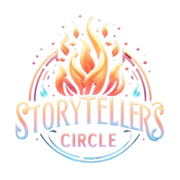Squidward Uchiha
Squid Style: Clarinet Jutsu
Just popping in another thread about my personal RP biz and hopefully people will read this one this time xD
So, as the title suggests: whenever I make a character sheet for a sign-up thread nowadays, I do not include a personality section in said sheet. I'm not sure if this is a common practice around these parts, but it sure wasn't where I hosted RPs last.
Why is this? Well, I came to a realization -- setting specific personality traits limits characterization.
Let me explain: picking out character traits for your OC is a natural process, and I have no qualms against that as a concept. It's natural to assign a certain archetype since that is what makes your character unique and stand out from the other players' characters. However, it's the part after you assign those traits where things get murky. Now it feels like you have to stick to a certain guideline and only said guideline whenever your character speaks or reacts to situations within the story, something you have no control over unless you're the host. And in these scenarios, I've found it, in hindsight, difficult to write characterization that I feel is not only appropriate for the character but also makes them authentic at the same time.
After all, a character is defined than more than just their set traits. A truly fleshed out character is able to respond to pretty much any situation with a well adjusted characterization that still fits in line with said traits. Even if they're naturally happy, they're should be moments where they're allowed to be angry. Even if they're angry, there should be moments where they're allowed to be rational. Even if they're rational, there should be moments where they're allowed to be irrational. It makes them flawed, but it makes them all the more real at the same time.
What I'm basically saying is I feel like a personality section can box you in creatively when writing your character and make them come off as 2-dimensional. But of course, this is just my opinion. This is more of a personal preference than anything, so I don't enforce this as a rule that all RPers should follow or anything. It's just easier for someone like me to handle my OCs this way.
So, do I have a point or do I just sound like I suck at writing characters? You decide. xD
So, as the title suggests: whenever I make a character sheet for a sign-up thread nowadays, I do not include a personality section in said sheet. I'm not sure if this is a common practice around these parts, but it sure wasn't where I hosted RPs last.
Why is this? Well, I came to a realization -- setting specific personality traits limits characterization.
Let me explain: picking out character traits for your OC is a natural process, and I have no qualms against that as a concept. It's natural to assign a certain archetype since that is what makes your character unique and stand out from the other players' characters. However, it's the part after you assign those traits where things get murky. Now it feels like you have to stick to a certain guideline and only said guideline whenever your character speaks or reacts to situations within the story, something you have no control over unless you're the host. And in these scenarios, I've found it, in hindsight, difficult to write characterization that I feel is not only appropriate for the character but also makes them authentic at the same time.
After all, a character is defined than more than just their set traits. A truly fleshed out character is able to respond to pretty much any situation with a well adjusted characterization that still fits in line with said traits. Even if they're naturally happy, they're should be moments where they're allowed to be angry. Even if they're angry, there should be moments where they're allowed to be rational. Even if they're rational, there should be moments where they're allowed to be irrational. It makes them flawed, but it makes them all the more real at the same time.
What I'm basically saying is I feel like a personality section can box you in creatively when writing your character and make them come off as 2-dimensional. But of course, this is just my opinion. This is more of a personal preference than anything, so I don't enforce this as a rule that all RPers should follow or anything. It's just easier for someone like me to handle my OCs this way.
So, do I have a point or do I just sound like I suck at writing characters? You decide. xD
